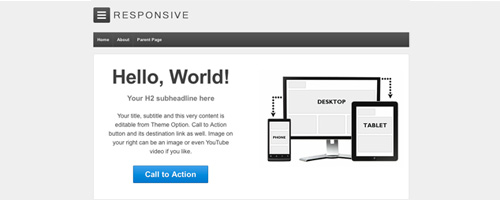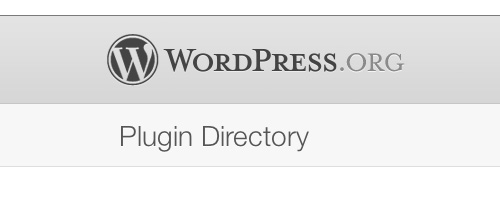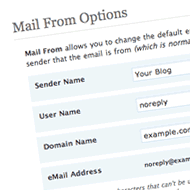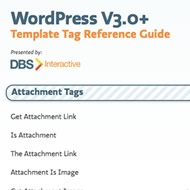Profiling the WordPress Expert
Mastering WordPress is akin to conquering the web! This ain’t an overstatement considering the below:
- 16.8% of all websites use WordPress.
- While I am writing this post, the number of WordPress sites in the world is 55,501,705.
- Further, above 2.5 billion WordPress blog pages are viewed each month by more than 341 million visitors.
- During 2011 in US alone, every 100 domains registered, 22 used WordPress.
- Compared to Drupal, WordPress is 3.4 times popular.
- WordPress powers 58,000 websites (not blogs) that form a part of the top 1 million websites.
WordPress, once considered a blogging platform, has matured to a full-fledged CMS. WordPress now majorly plays two roles — blogging platform and CMS. Research predicts WordPress to spread its footprint at a faster rate, thanks to the enormous developer and user base. All these translate to a great demand for WordPress powered sites in the coming days and being a WordPress developer means a direct link to the future of the web given WordPress’s increasing versatility. Correspondingly, the demand for quality WordPress developers is on the rise.
1. For Hirers: Distinguishing x from y
Sensing the spontaneous growth in WordPress’s popularity, a number of people have started calling themselves ‘expert’ WordPress developers to cash in on the situation. Many times the hirer ends up hiring developers who tend to lack heavily the required skills or exposure in WordPress. If you’re on the hunt for reliable WordPress developers, the following checkpoints could be of great value in drawing the line between ‘average’ and ‘expert’.
2. Check the Basics
I would say that this is the most important check you need to perform on your WordPress developer. WordPress or any CMS for that matter, in general, revolves around WAMP or LAMP environment. If your WordPress developer doesn’t have hands-on-experience in WAMP or LAMP that means he has little knowledge of PHP and MySql. Essentially any developer should at least know PHP coding. It’s also important to keep in mind that a developer who has years of experience in WordPress can lose track of the basics since there’s little or no coding involved in WordPress unless they are into full-time plugin development. But, your WordPress developer should at least have some working knowledge of PHP and MySQL.
3. A Bit on Themes
- Assessing how your developer deals with theming can be a good yardstick.
- Do they know how to create a theme from an existing one?
- Do they make a bungle of plugins or try new codes while creating new theme but the same functionality?
- Do they know any framework that can make the job easy and save time?
- Do they know firebug’s role in child theme?
- Do they know about CSS and child theme?
- Do they know how to make the child theme work?
4. Plugins that Deliver
WordPress sans plugins is like the car without tyres. Your developer must know the criteria on which he would choose the plugins. Plugins are aplenty and free but the catch is the quality. Your developer should know that plugins are to be used as per the need and stuffing your site with them will only slow down your site. Badly coded plugins could be inconsistent with WordPress, especially the latest versions. Worst are the security issues posed by poor quality plugins. Hence your developer should know that good plugins are those which:
- have high rating,
- are updated frequently,
- have good reviews in fair amount,
- are developed by well-known developers,
- have reliable support.
5. Keep the Essentials Intact
If your developer has a habit of hacking the WordPress core, have no second thoughts – you need to keep your search on. Hacking the core is similar to modifying or deleting an Operating System’s system/registry files. WordPress provides APIs to communicate with the core to unlock advanced functionalities and under no circumstances the core is to be disturbed. The implications can be fatal.
6. Organized and Meticulous
A good developer knows that just coding, theming and customizing of the WordPress site is not all. He should have a clear-cut maintenance plan for the site. WordPress releases periodic updates and same is the case with the various plugins installed on the site. Taking regular backup of the files and the database, and removing security lapses are equally important. The developer should schedule these activities by either automating it or manually performing it.
Your developer should know that he cannot make modifications on the live site instead he should be maintaining a development version. All the new features, additions, modifications etc need to be tested on the development version before being installed onto the live one.
7. Multitasking
Your developer can be excellent in what he does but is he a problem solver or has multitasking abilities? A better choice would be someone who can install, setup the database, find solutions to the problems anywhere on the site. If he is unable to do these then you would need to incur further costs by appointing someone else for the same.
8. Work History
Go for a detailed background verification of your developer wherein you would look at:
- previous experience,
- the type of websites handled,
- the various functionalities built,
- previous client’s feedback,
- if previous work resembles your current needs.
There are a thousand out there with that ‘expert’ tag, figuring out the real experts from the crowd could be quite challenging for employers, mostly the non-technical ones. I hope this article helped you understand the qualities of a WordPress expert. Your views and feedback are much welcomed.












